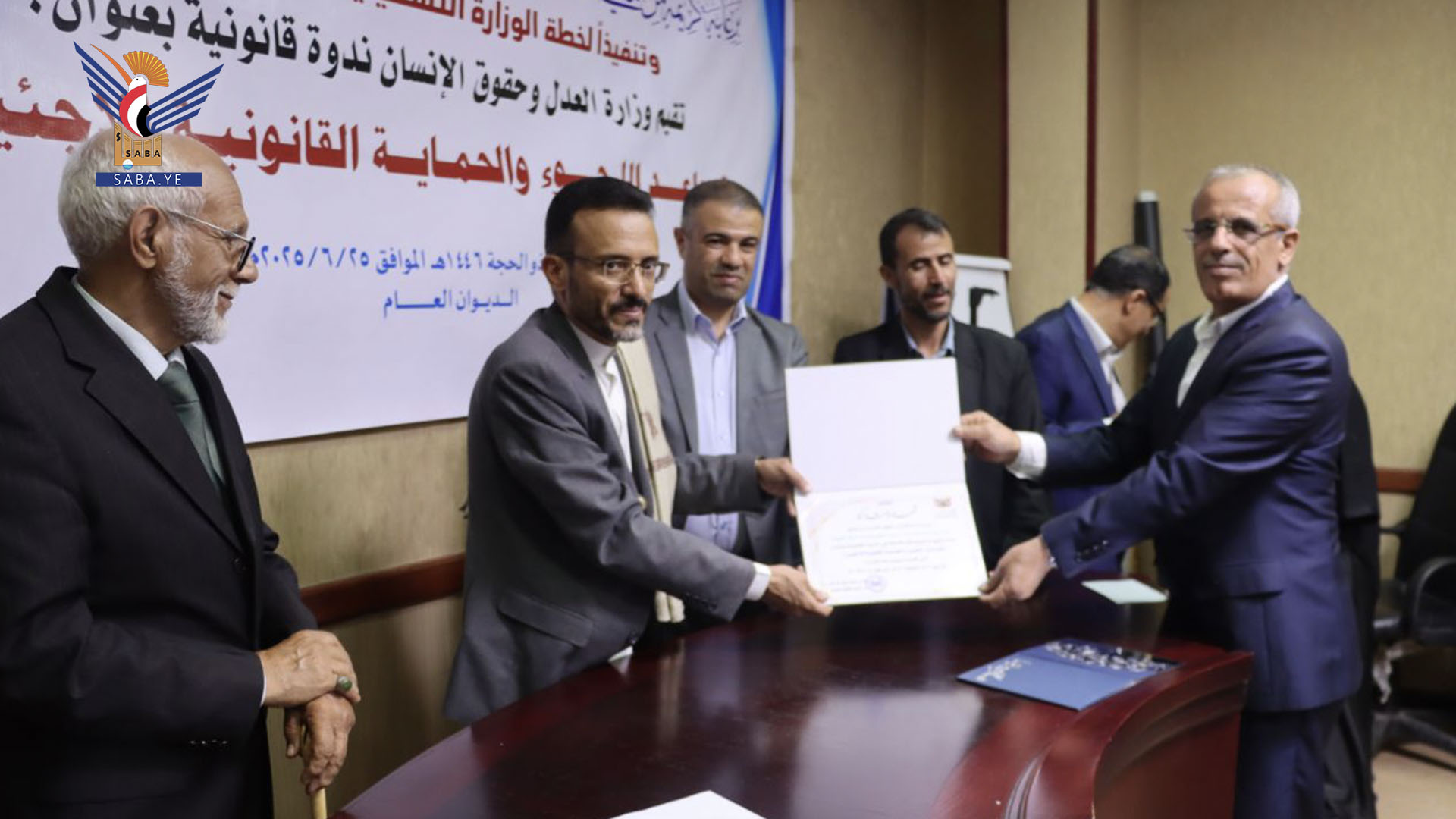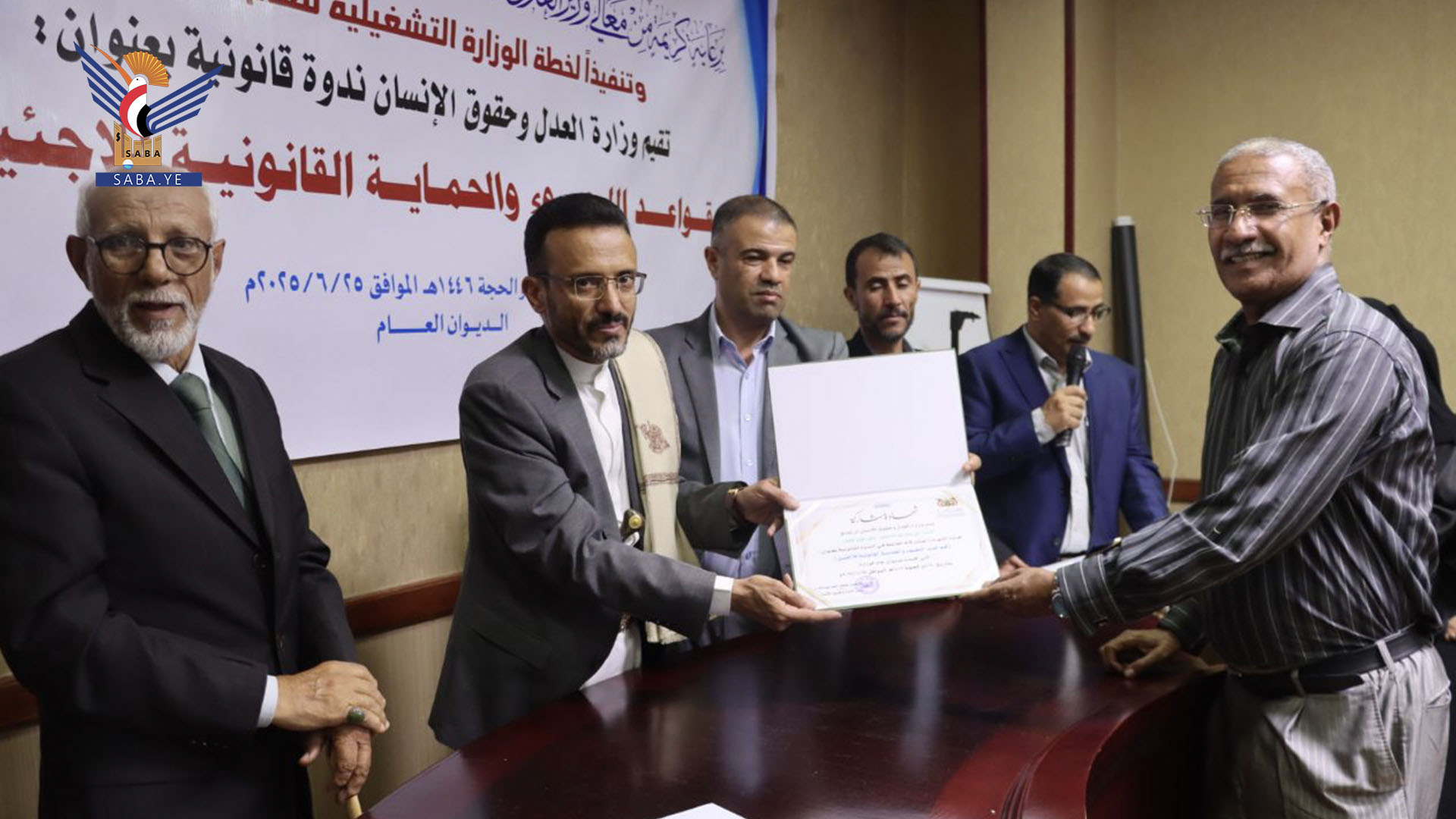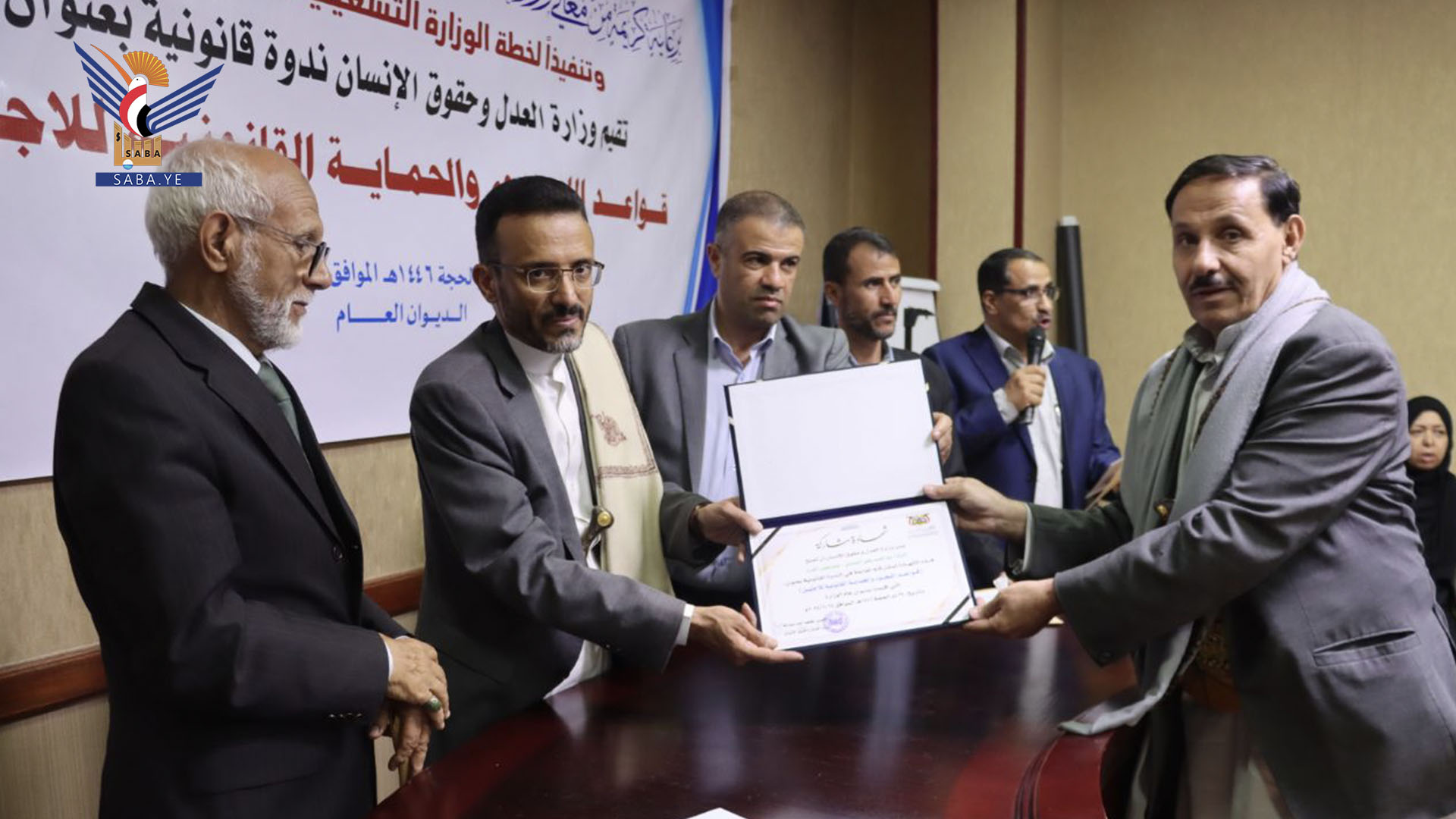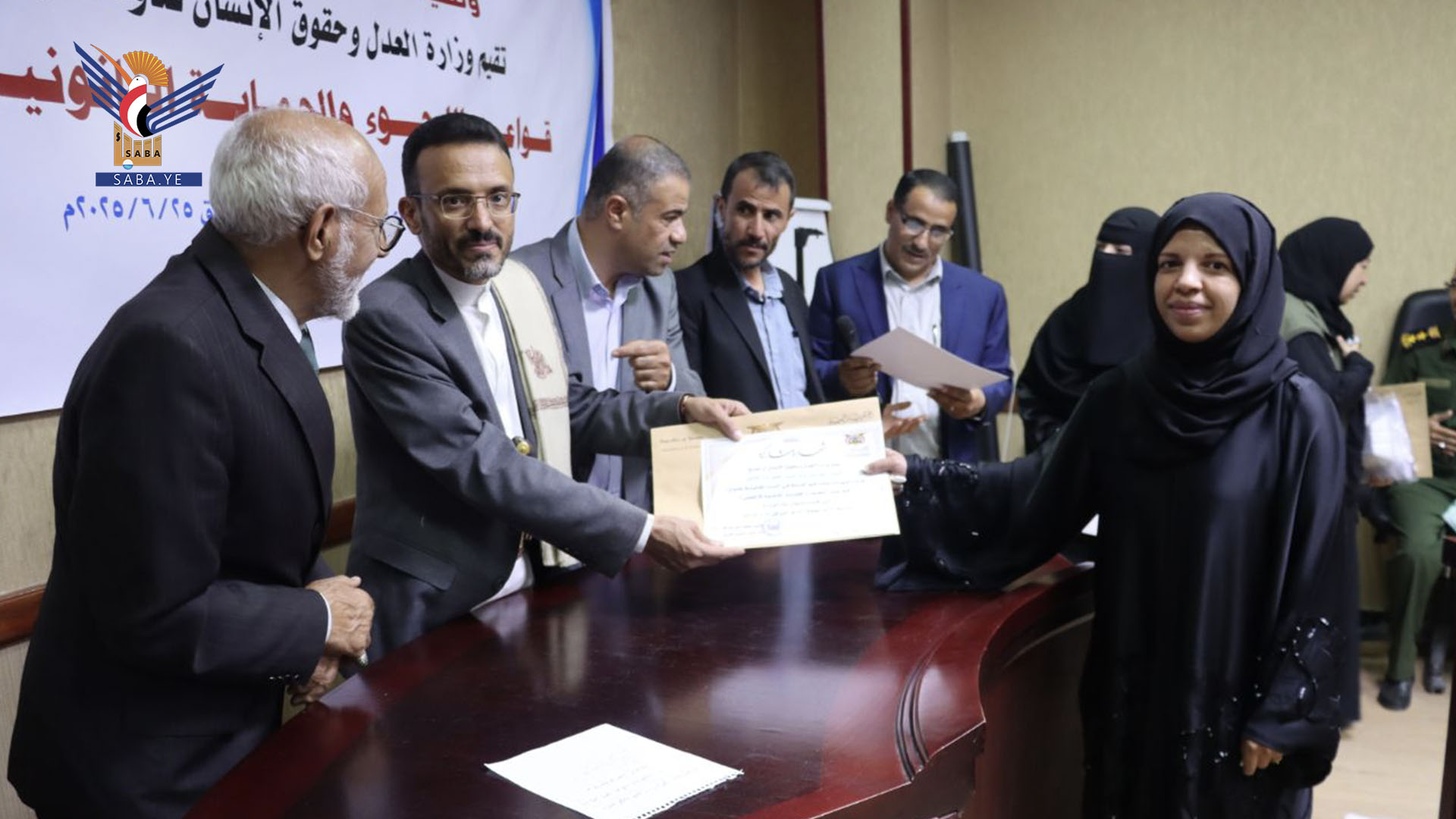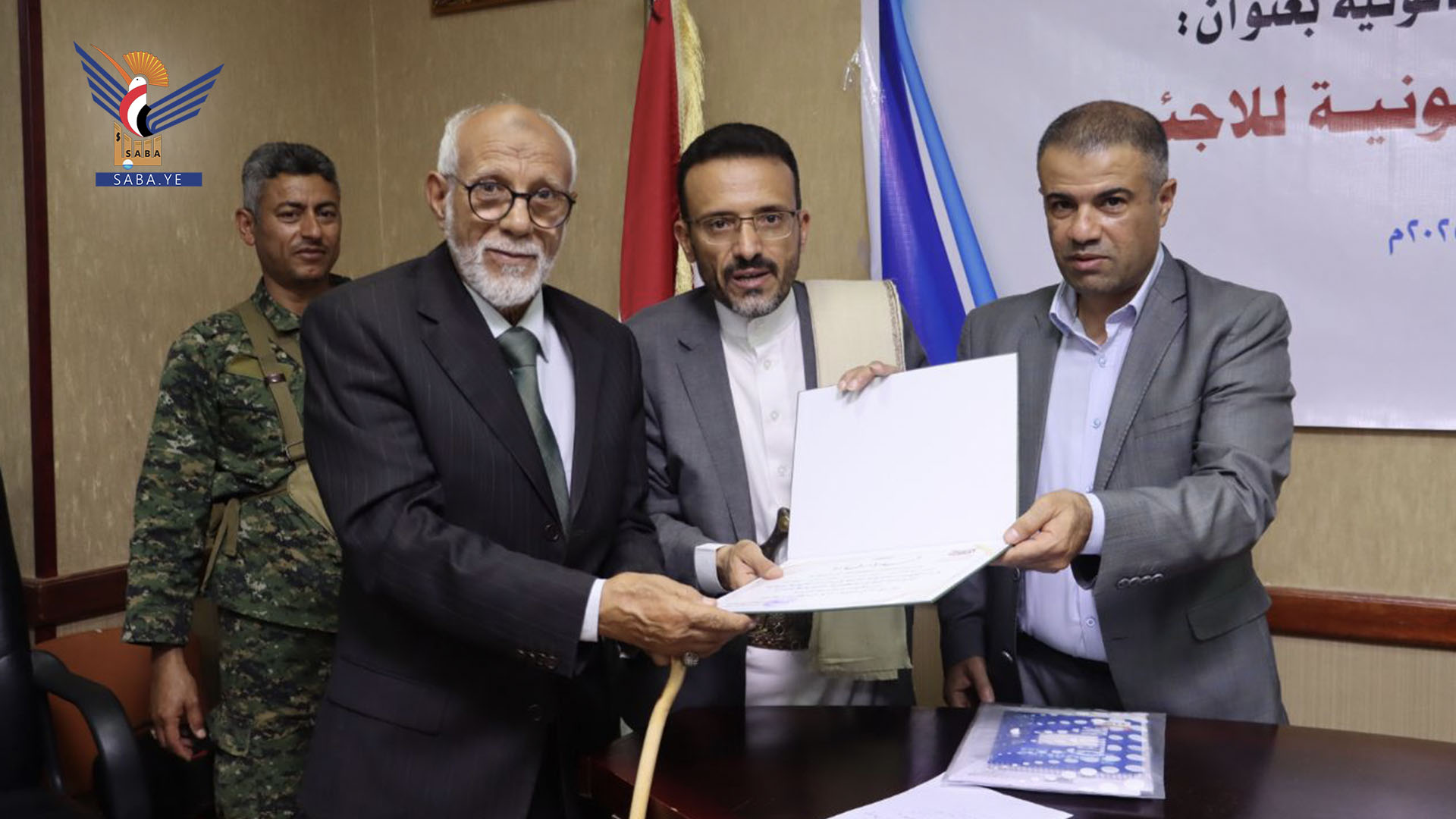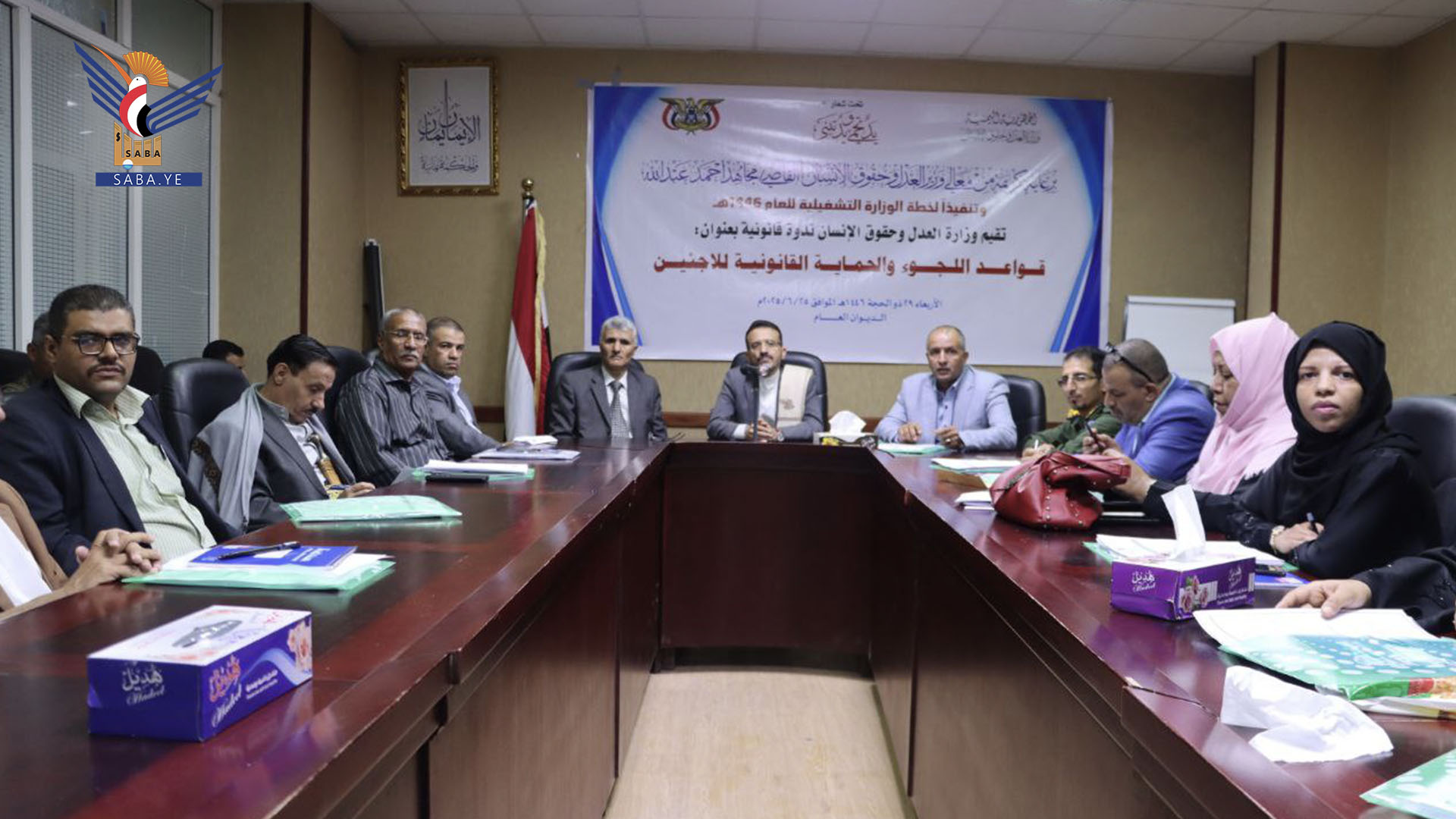
Sana'a – Saba:
The Ministry of Justice and Human Rights on Wednesday organized a legal seminar on "Rules of Asylum and Legal Protection for Refugees," attended by 27 representatives from various government bodies, including the Presidency, Supreme Judicial Council, and key ministries.
Ambassador Abdul-Ilah Hajar, Advisor to the President of the Supreme Political Council, highlighted the seminar's importance given the influx of African refugees into Yemen and the absence of a national asylum law, despite Yemen being a signatory to the 1951 Refugee Convention. He hoped the seminar's outcomes would help regulate refugee flows.
Deputy Minister of Justice and Human Rights Judge Ibrahim Al-Shami, emphasized that the right to asylum is a fundamental human right rooted in faith and humanitarian principles. He urged the international community to support Yemen in managing refugee waves, improve refugee conditions, and build legislative capacities for asylum-related agencies.
Judge Khaled al-Baghdadi, head of the Technical Office, noted that the refugee crisis is a pressing international issue heavily impacting Yemen. He stressed the need to assess whether a national asylum law would burden the state amidst ongoing aggression and blockade. Ambassador Dr. Ahmed Al-Emad, Dean of the Diplomatic Institute, affirmed Yemen's historical role as a transit and safe haven for refugees.
The seminar included working papers on asylum concepts and legal frameworks, concluding with recommendations to strengthen Yemen's legislative system, including forming a committee to study existing laws and potentially drafting a new asylum law. It also called for continued training for relevant authorities and urged UNHCR and IOM to fulfill their commitments to refugee programs and durable solutions.
The Ministry of Justice and Human Rights on Wednesday organized a legal seminar on "Rules of Asylum and Legal Protection for Refugees," attended by 27 representatives from various government bodies, including the Presidency, Supreme Judicial Council, and key ministries.
Ambassador Abdul-Ilah Hajar, Advisor to the President of the Supreme Political Council, highlighted the seminar's importance given the influx of African refugees into Yemen and the absence of a national asylum law, despite Yemen being a signatory to the 1951 Refugee Convention. He hoped the seminar's outcomes would help regulate refugee flows.
Deputy Minister of Justice and Human Rights Judge Ibrahim Al-Shami, emphasized that the right to asylum is a fundamental human right rooted in faith and humanitarian principles. He urged the international community to support Yemen in managing refugee waves, improve refugee conditions, and build legislative capacities for asylum-related agencies.
Judge Khaled al-Baghdadi, head of the Technical Office, noted that the refugee crisis is a pressing international issue heavily impacting Yemen. He stressed the need to assess whether a national asylum law would burden the state amidst ongoing aggression and blockade. Ambassador Dr. Ahmed Al-Emad, Dean of the Diplomatic Institute, affirmed Yemen's historical role as a transit and safe haven for refugees.
The seminar included working papers on asylum concepts and legal frameworks, concluding with recommendations to strengthen Yemen's legislative system, including forming a committee to study existing laws and potentially drafting a new asylum law. It also called for continued training for relevant authorities and urged UNHCR and IOM to fulfill their commitments to refugee programs and durable solutions.
